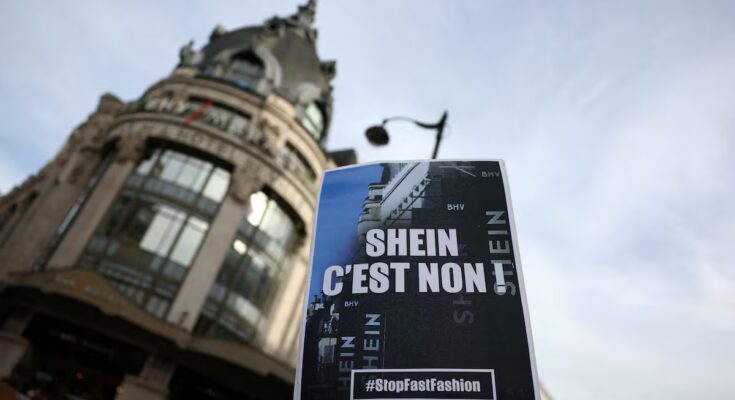When Primark announced in 2013 that it would open Spain’s largest single-brand store on Madrid’s Gran Vía, mayor Ana Botella mentioned it in the state of the city debate as one of the examples of investment projects that her policy was promoting in the capital. The shop opened and then the others arrived, and here peace and then polyester.
Am I against shopping at Primark? No. Did it perplex me that the mayor of my city talked about it as if it were a tourist center that leads to a better Madrid? Obviously.
Twelve years later, the Chinese company Shein opened its first physical store in the world. And the news and images wouldn’t go beyond a handful of headlines in the salmon press, if it weren’t for what it implies and what it says a little about us.
They did it at the Bazaar de l’Hôtel de Ville (BHV) in Paris, inside a shopping center that other brands have abandoned so as not to share space or oxygen with the Asian giant and in a very difficult moment for the brand, since its directors will have to appear before French deputies on November 18 to answer questions about the sale of dolls containing child pornography on their site.
They did so after and despite protests from the unions and the Paris City Council. Greetings to those who say everyone is the same.
On Wednesday, the day of the opening, which was also the day on which the French government ordered the suspension of its digital platform, huge queues of citizens formed in front of the store eager to buy in analogue what they already do online and dozens of riot police. And there were also people carrying banners denouncing the working conditions of their employees, the opacity of the company, the damage to the environment, the consequences of the compulsive and cumbersome filling of our closets.
Shein in Paris is the victory of opacity and capitalism, of a company that copies and remains silent. But it is also a blow to the heart sizea country whose fashion sector represents around 3% of GDP. It’s taking out your checkbook and positioning yourself in the world capital of brands we can’t afford. It’s capitalism that doesn’t want to follow orders.
I wonder what will happen if they come to Madrid. And I think I know the answer.



